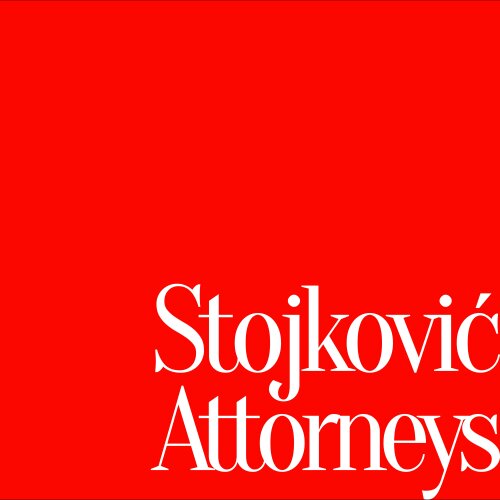Best Fintech Lawyers in Belgrade
Share your needs with us, get contacted by law firms.
Free. Takes 2 min.
List of the best lawyers in Belgrade, Serbia
About Fintech Law in Belgrade, Serbia
Fintech law in Belgrade, Serbia is an evolving branch of legal studies that focuses on the regulatory structures and legal issues related to the growing sector of FinTech, which encompasses financial and technological services. This broad field has seen an exponential growth in recent years, demonstrating the country's openness to digitization and innovation in finance. The nation emphasizes regulatory compliance and data protection norms, all under the broader umbrella of the country's commercial laws and the EU's guidelines, which Serbia is aligning its regulatory environment with to meet its European integration goals.
Why You May Need a Lawyer
As the fintech sector evolves, dealing with regulations and compliance can become complex. This complexity can necessitate the services of a well-versed fintech lawyer. Legal guidance is often required during the establishment of fintech startups, obtaining the requisite licenses, data protection compliance, contract drafting and negotiation with various stakeholders. Dispute resolution involving fintech transactions and understanding international fintech laws for cross-border operations are other areas where a lawyer's expertise would be beneficial.
Local Laws Overview
In Serbia, the local laws that are particularly significant for fintech are mainly derived from the Law on Banks, Capital Market Law, Law on Insurance, and Law on Payment Services. These laws outline compliance requirements for financial institutions, data protection guidelines, and the regulations regarding online transactions, digital wallets, online lending, and crowdfunding. They also encompass the prevention of money laundering and financial fraud, which are especially pertinent in fintech operations.
Frequently Asked Questions
1. What is the significance of fintech law in Serbia?
As Serbia's fintech industry thrives, understanding the applicable legal framework becomes crucial for operating within the boundaries of law, avoiding penalties, and building professional trust.
2. Are cryptocurrencies legal in Serbia?
As of the current regulations, Serbia allows trade and holding of cryptocurrencies, but they are not considered legal tender, which means they cannot be used to discharge financial obligations.
3. Can a fintech company operate without a license in Serbia?
Depending on the nature of their operations, most fintech businesses like banks, insurance companies, and payment service providers would typically require a license from the relevant authorities.
4. How does data protection law affect fintech in Serbia?
Data protection laws play a significant role in fintech as companies handle a large amount of personal and financial data. Non-compliance can result in severe penalties and loss of customer trust.
5. What happens if a fintech company falls foul of anti-money-laundering laws?
A breach of anti-money-laundering laws can lead to hefty fines, revocation of licenses, and potential criminal charges against the company directors.
6. How are fintech disputes resolved in Serbia?
Disputes within the fintech realm are resolved according to the stipulated legal procedures in Serbian courts or through alternative dispute resolution methods when appropriate.
7. How does EU law influence fintech law in Serbia?
As Serbia is working towards EU membership, it follows the trend of harmonizing its laws with EU standards, including in the field of fintech.
8. Do fintech companies need to hire lawyer services?
Given the regulatory complexity in fintech, having legal advice is beneficial and can even be necessary in cases of legal disputes, compliance issues, and overall business conduct.
9. What are the penalties for non-adherence to fintech laws?
Non-compliance with fintech laws can result in several penalties, including hefty fines, license revocations, and in some serious cases, closure of the business.
10. Are financial technologies regulated differently than traditional financial services?
While many of the regulations that apply to traditional financial services also apply to fintech, certain aspects like digital payments, data protection, and cybersecurity have additional specific regulations for fintech companies.
Additional Resources
Serbia's National Bank, the Securities Commission and the Ministry of Finance all provide valuable resources and information about the national fintech laws. In addition, the EU provides guidance documents and lawmakers often refer to the European Banking Authority and the European Securities and Markets Authority for creating fintech-related laws.
Next Steps
If you are seeking legal assistance for fintech-related matters in Belgrade, Serbia, search for a reputable lawyer who specializes in fintech law. Prepare a clear overview of your situation, any legal issues you’re currently facing, and your business's specific needs to help the lawyer better understand your case. It is also beneficial to familiarize yourself with the basic legal tenets of fintech in Serbia, to be better informed during your consultations.
Lawzana helps you find the best lawyers and law firms in Belgrade through a curated and pre-screened list of qualified legal professionals. Our platform offers rankings and detailed profiles of attorneys and law firms, allowing you to compare based on practice areas, including Fintech, experience, and client feedback.
Each profile includes a description of the firm's areas of practice, client reviews, team members and partners, year of establishment, spoken languages, office locations, contact information, social media presence, and any published articles or resources. Most firms on our platform speak English and are experienced in both local and international legal matters.
Get a quote from top-rated law firms in Belgrade, Serbia — quickly, securely, and without unnecessary hassle.
Disclaimer:
The information provided on this page is for general informational purposes only and does not constitute legal advice. While we strive to ensure the accuracy and relevance of the content, legal information may change over time, and interpretations of the law can vary. You should always consult with a qualified legal professional for advice specific to your situation.
We disclaim all liability for actions taken or not taken based on the content of this page. If you believe any information is incorrect or outdated, please contact us, and we will review and update it where appropriate.









